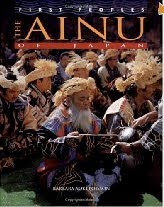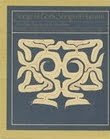 This article was in the October 4 edition of the Mainichi Daily News.
This article was in the October 4 edition of the Mainichi Daily News.SAPPORO -- A children's performance group here will stage musical performances featuring Ainu culture next week.
The Sapporo Kodomo Musical Ikuseikai, a group from Hokkaido Prefecture, will perform two original musicals at the New National Theater in Tokyo's Shibuya Ward on Oct. 6 and 7.
Through the musical pieces featuring Ainu, an ethnic group indigenous to Japan's Hokkaido area, some 40 children aged 5 and 15 will depict the splendor of Ainu culture and the message of coexistence.
The theater group was established by director Mariko Hosokawa, 78, in 1981. Born in Nagasaki, Hosokawa moved to Sapporo in 1958 when she married her husband. She then came across Ainu culture, and became captivated by the lifestyle of the aboriginal Ainu people.
At the same time, however, Hosokawa came to learn about the deep-rooted discrimination and prejudice against Ainu people. Hosokawa says that she founded her musical troupe because she wanted to introduce her Ainu knowledge to children, who are far more open-minded than adults.
In 1979, the group performed its first Ainu musical with the participation of about 100 children in Sapporo. Hosokawa received a vast number of threatening calls.
"I thought someone might come to kill me," said Hosokawa. "It was a spirit of rebellion that pushed me. I wanted to denounce the discrimination through the musical."
During the Tokyo performance, the children will perform "Pororintan," a musical production based on the life of Hosokawa's late Ainu teacher Shigeru Kayano, the first Ainu to become a member of the Japanese Diet, and "Hitotsu no owande tu miku miku," an Ainu saga called "Yukar."
None of the 40 children performing the musical has Ainu background; however, they hope to promote understanding of the ethnic culture among people.
"Ainu people respect all living creatures including animals and plants. I want people in Tokyo to realize how great that is," a 10-year-old boy from the troupe said.
Last year, the Japanese Diet officially recognized Ainu as Japan's indigenous people. The government is now moving forward to establish new laws to protect Ainu from discrimination and poverty.
It has been 30 years since Hosokawa started her activities in the hope of eradicating prejudice against Ainu people. "We've finally come this far," Hosokawa said.










